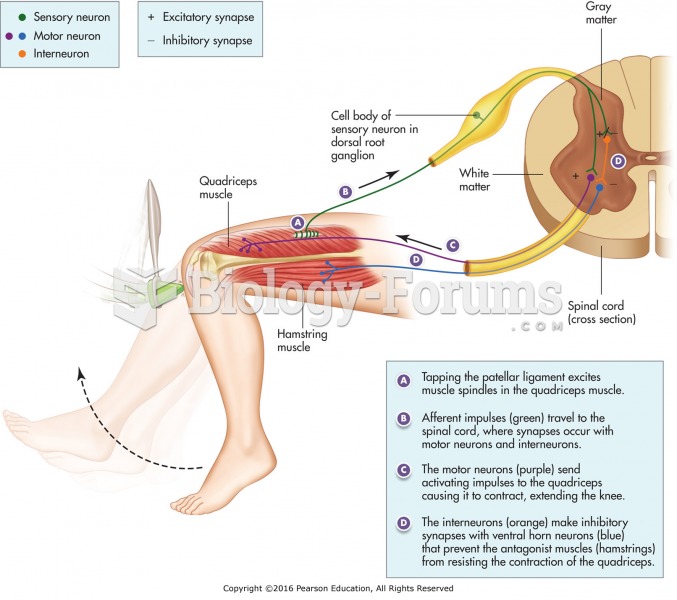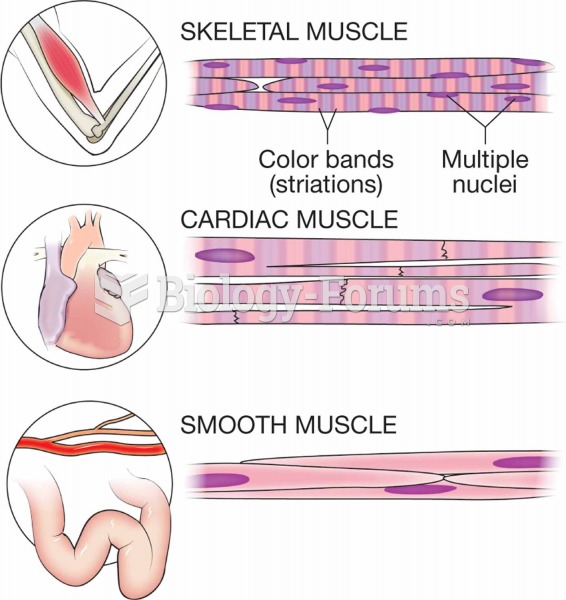|
|
|
Over time, chronic hepatitis B virus and hepatitis C virus infections can progress to advanced liver disease, liver failure, and hepatocellular carcinoma. Unlike other forms, more than 80% of hepatitis C infections become chronic and lead to liver disease. When combined with hepatitis B, hepatitis C now accounts for 75% percent of all cases of liver disease around the world. Liver failure caused by hepatitis C is now leading cause of liver transplants in the United States.
The longest a person has survived after a heart transplant is 24 years.
Medications that are definitely not safe to take when breastfeeding include radioactive drugs, antimetabolites, some cancer (chemotherapy) agents, bromocriptine, ergotamine, methotrexate, and cyclosporine.
Patients who cannot swallow may receive nutrition via a parenteral route—usually, a catheter is inserted through the chest into a large vein going into the heart.
Addicts to opiates often avoid treatment because they are afraid of withdrawal. Though unpleasant, with proper management, withdrawal is rarely fatal and passes relatively quickly.
 Herniated disk. A herniated disk is a protrusion of the disk’s gelatinous center, called the nucleus
Herniated disk. A herniated disk is a protrusion of the disk’s gelatinous center, called the nucleus
 The patellar reflex. (A) Striking the patellar ligament excites the quadriceps muscle spindles.(B) ...
The patellar reflex. (A) Striking the patellar ligament excites the quadriceps muscle spindles.(B) ...





